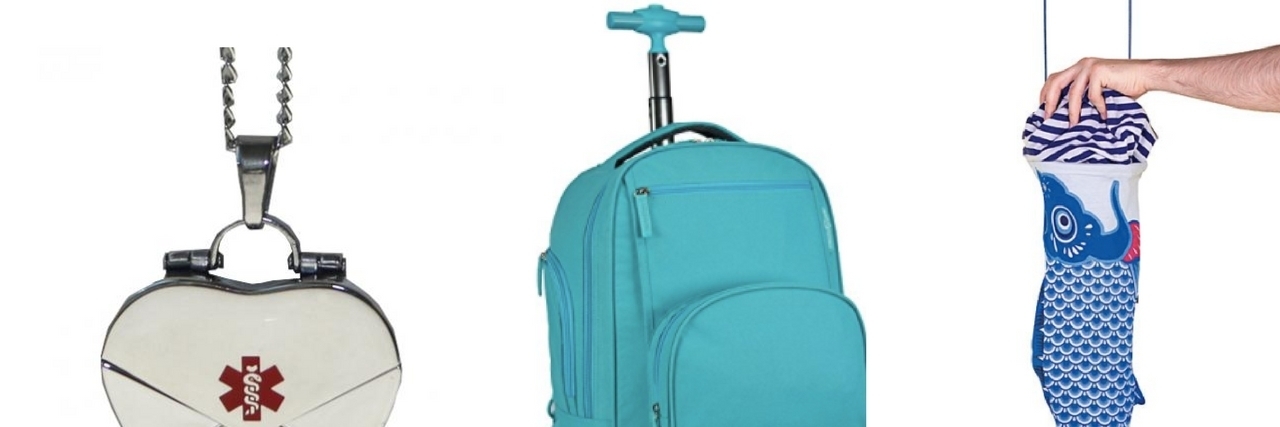14 Things That Can Make High School With a Chronic Illness Easier
Editor's Note
We hope the products below, all recommended by our Mighty community members, help you or a loved one in your health journeys. Just so you know, The Mighty may collect a share of sales from the Amazon links on this page.
Tackling high school is tough for any teenager. But teens with chronic health conditions deal with challenges the average student doesn’t have to think about. For example, where will you keep your medication? What if you have a pain flare in the middle of class? How do you carry a heavy backpack to all your classes?
It’s important to be honest with yourself and your school about what accommodations and tools you need in order to succeed. At the very least, you’ll have the peace of mind of knowing you’re prepared for any unexpected health challenges that come your way.
We asked our Mighty community with chronic illness what products or tools would make high school easier. Whether you’re a student or a parent navigating high school with your child, these recommendations can help keep health challenges from getting in the way.
1. Individualized Education Plan (IEP) or 504 Plan
This is an absolute must for anyone dealing with health issues or disabilities that make school harder. An IEP is a program developed to ensure a student with disabilities receives specialized education and services. A 504 plan ensures a student with disabilities receives accommodations that will help them succeed at school. These plans can help make sure you are given the right support — for example, extra time getting from class to class, an aide to help you take notes, permission to use a laptop, or even permission not to participate in certain parts of a class.
You’ll want to schedule meetings with your school’s administration to talk through your challenges and decide what the school can do to help you succeed. Finalizing exactly what you need and what the school and teachers will do for you will help make sure everyone at school is on your team.
“Without the documentation you can’t hold the school to requested supports. Hold team meetings as often as needed to ensure everyone is on the same page,” said Heather Ann Christensen.
2. Rolling Backpack
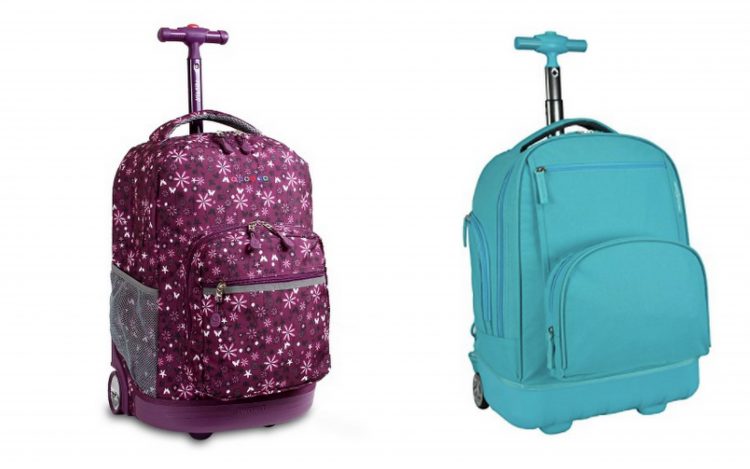
Carrying a heavy backpack can be painful at best or just not possible at worst if you have chronic pain or fatigue. Backpacks on wheels take the pressure off your body — one less thing you have to worry about causing pain.
“A rolling backpack! Helped having fibromyalgia and chronic back pain,” said Kaitlyn Young.
Our picks: Sunrise Rolling Backpack ($32.99) and Pacific Gear Backpack ($50)
3. Voice Recorder
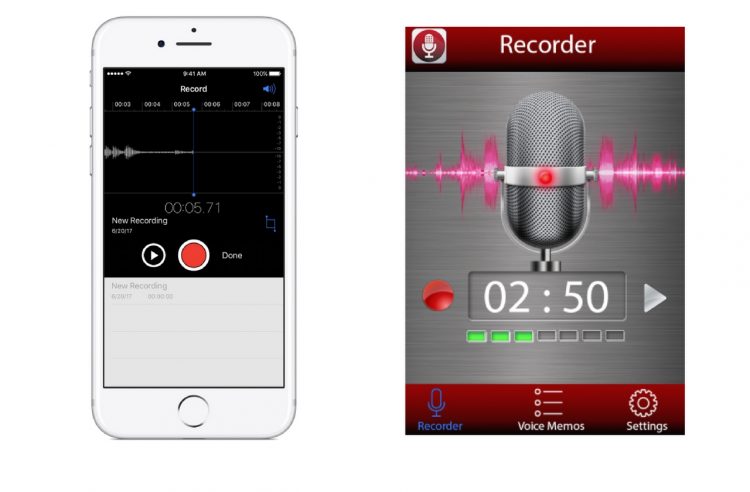
If you have difficulty taking handwritten notes or deal with brain fog that makes remembering assignments difficult, recording your teacher’s lesson or even just recording reminders to yourself can take some pressure off you during class. You’ll likely want to run this by your teachers first if you want to record for longer periods during class (it may even be a part of the discussion about your disability accommodations — having an aide sit with you and take notes could be another option), but if it’s allowed, it can help you stay on top of important information.
Our picks: Voice Memo app (free for iPhone) and Voice Recorder (free for Android)
4. Medical Jewelry
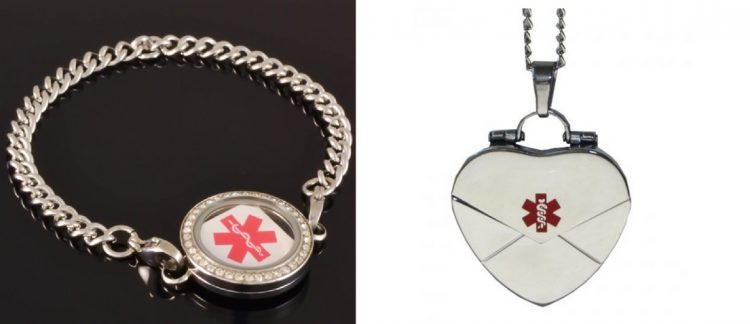
During the school day, you might not always be with someone who knows your medical history or what to do in an emergency. In times like these, a medical locket or bracelet that includes your diagnosis, brief emergency instructions and even space for a pill can be literally lifesaving. Wearing it may also give you peace of mind that bystanders will know how to take care of you if you can’t communicate.
“There are medical lockets with a place to put an emergency pill and a small note with instructions. They have the medical insignia on the front. Great for hypoglycemia, diabetes, epilepsy, and other diseases that cause unconsciousness or an inability to communicate,” said Jackie Strickland. “The nurse’s office may be informed but all of the students and teachers probably aren’t. Take it from someone who knows a lot of educators. An item like this can save someone’s life.”
Our picks: Stainless Steel Locket Bracelet ($23.65) and Engraved Medical Alert Heart Envelope Locket ($34.95)
5. Support Pillow for Your Chair
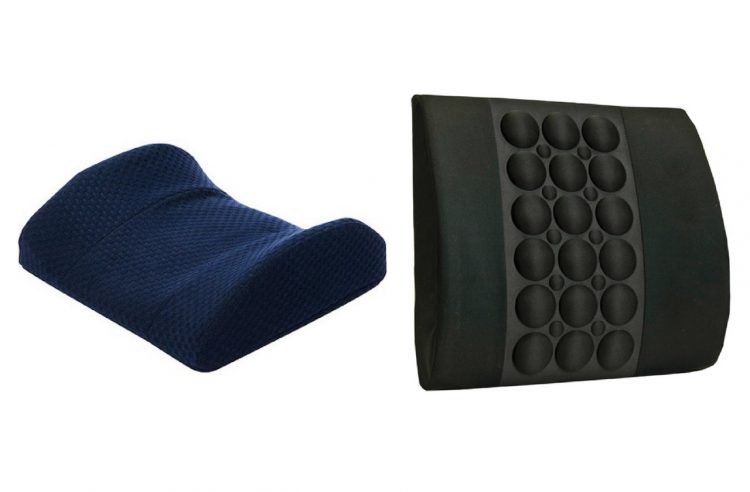
Hard, plastic school chairs are notoriously uncomfortable even for people without disabilities, so sitting on them as someone with health challenges and chronic pain can be downright excruciating. Bring a soft chair cushion to sit or rest your back on (just be sure to clear this with your teachers first). You may be able to leave it in the classroom so you don’t have to carry it around.
“A memory foam pillow cut down to size, to sit on. School chairs aren’t the most comfortable from memory,” said Janelle Fernandez.
Our picks: Carex Memory Foam Lumbar Support Cushion ($19.13) and Ergo Back Cushion ($25.99)
6. Portable Heating Pad/Patch
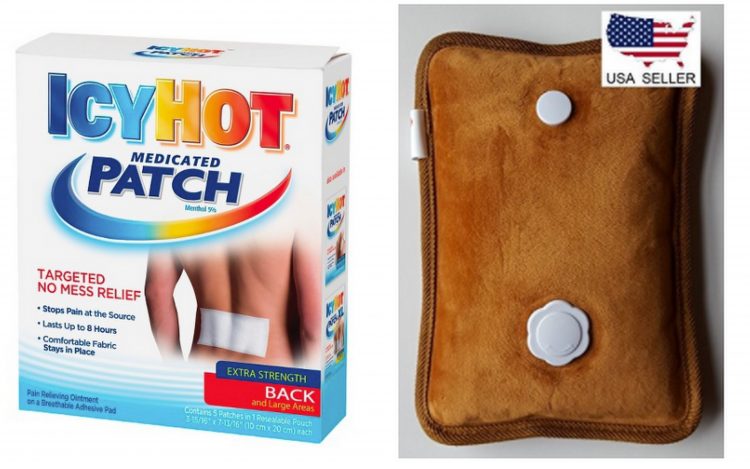
When you’re in the middle of class and feeling pain, a heating pad can provide quick relief. Stick-on patches, roll-on balms and battery-operated or rechargeable pads are discrete and easy to keep in your backpack or locker.
“Portable heating pad (that works similar to a hot water bottle) is sold on Amazon [featured above],” recommended Chelsea Lynn Manning. “I used this in college and it helped me immensely.”
Our picks: IcyHot Patches ($6.49/pack of 5) and Rechargable Portable Heat Pad ($19.95)
7. Change of Clothes
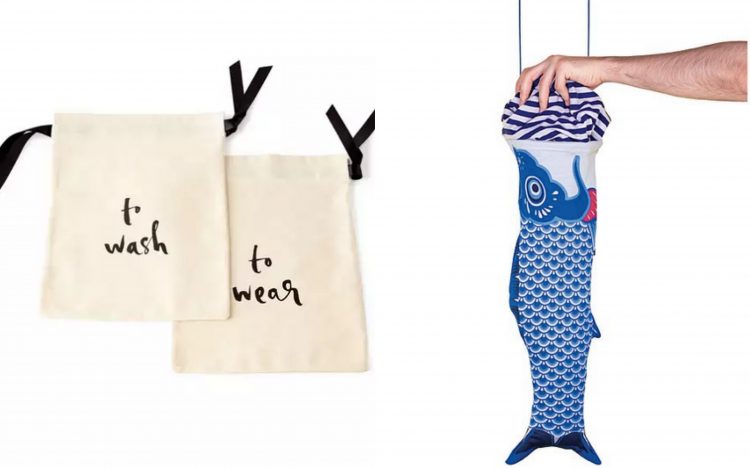
Spending hours at school in dirty clothes is never ideal, so it’s a good idea to stash a change of clothes in your backpack or locker for emergencies. Accidents happen, but at least you’ll know you can throw on a clean outfit to get through the rest of the day.
Our picks: To Wash & To Wear Lingerie Bags ($25) and Colorful Koi Travel Laundry Bag ($14)
8. Insulated Lunch Box
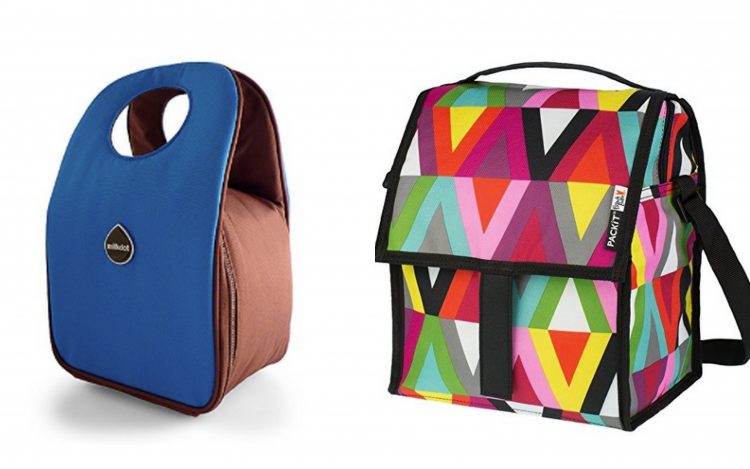
If you’re on a restricted diet and can’t eat the school lunch, or need to bring snacks to keep your blood sugar up and eat with medications, you’ll need a safe, chilled place to keep your food. Insulated lunch boxes keep your food cool and protected from being squished in your backpack. You can also use insulated lunch boxes for storing medical supplies that need to be kept with you.
Our picks: Milkdot Stoh Lunch Tote ($27) and PackIt Freezable Lunch Bag ($24.95)
9. Insulated Water Bottle
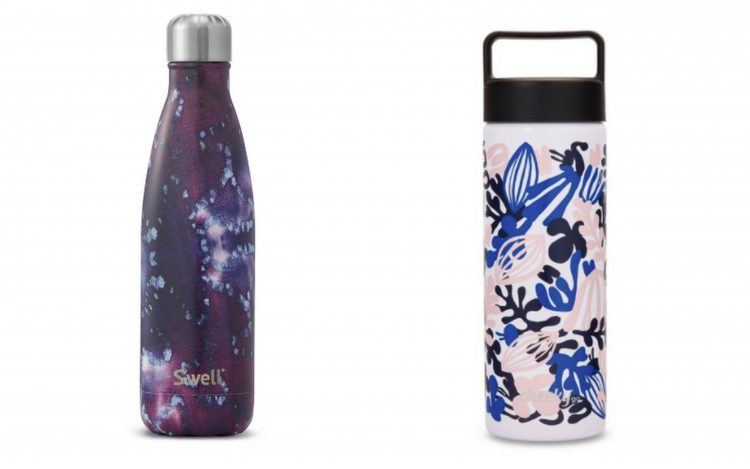
If you only grab a drink of water during breaks and lunch periods, you might find it difficult to get as much as you need throughout the day. An insulated water bottle makes it easy to stay hydrated.
Our picks: S’well bottle in Marrakesh ($35) and CheekyGo Insulated Stainless Steel Water Bottle ($22.99)
10. A Private, Quiet Place
When your symptoms flare and sitting in class becomes overwhelming, it can be helpful to have a quiet place to go to deal with it. This is something you may be able to set up in a 504 plan — perhaps you can agree you’ll go to the nurse’s office or other administrator’s office when you need to gather yourself, take some medication or rest. This way, you won’t be scrambling to figure out somewhere to go with a teacher who doesn’t understand your health challenges or feel pressured to sit and suffer silently in class.
Ellen Scott said a “dark quiet nap room” would help her at school, and Bailey Sonday agreed that a sensory room or “place to calm down” would be useful.
11. Medical Documents Organizer
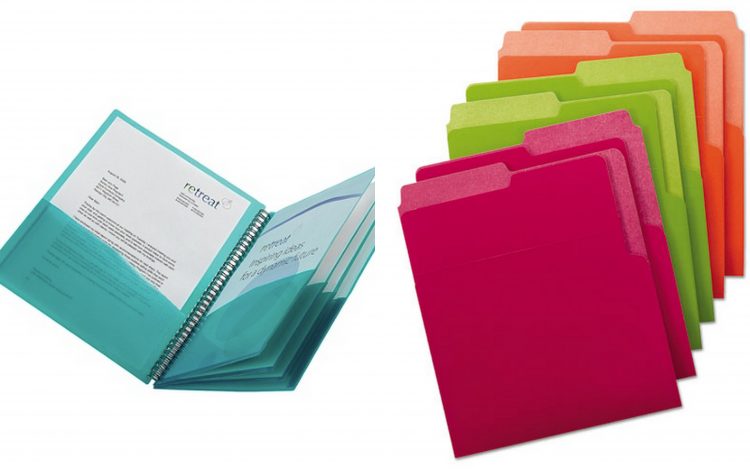
Keep any medical documents and doctor’s notes safe and organized in a folder in your backpack, locker and/or the administration office. Of course, your school should also have electronic documentation of any important medical forms and information. But it doesn’t hurt to have copies on hand in case of emergencies or if you need to quickly reference them during the day.
Our picks: Office Depot 8-Pocket Poly Organizer ($5.29 each) and Smead Organized Up Vertical File Folders ($4.79/pack of 6)
12. Hand/Wrist Brace
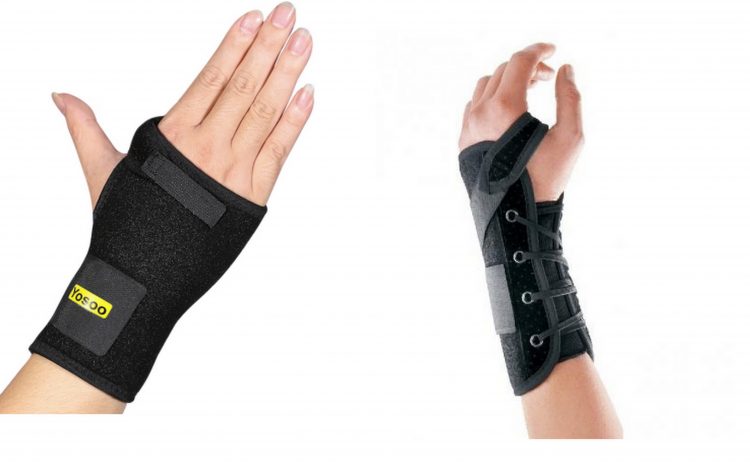
Taking notes can wreak havoc on your hand and wrist if you have a disorder that causes joint pain, like Ehlers-Danlos syndrome or arthritis. A brace can help support and stabilize your wrist and hand and reduce your pain.
Our picks: Wrist Brace with Support Splint ($6.99) Breg Wrist Lacer Brace ($22)
13. Pill Organizer
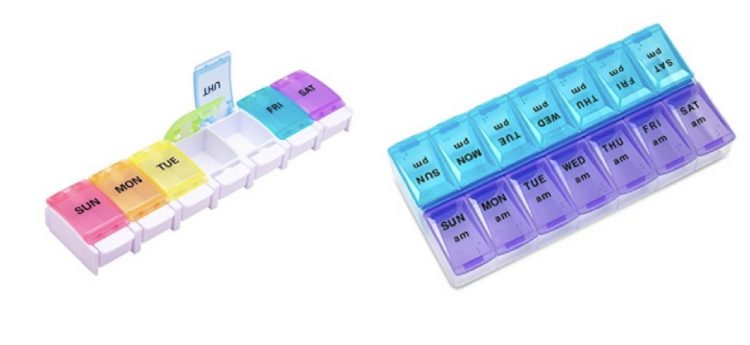
When it comes to keeping your medications organized, you’ll likely need to talk to administrators first (your school may require you to store your medication in the nurse’s office or keep them in original containers). Depending on what your needs are, a travel pill organizer can be a useful tool.
Our picks: Large 7-Day Pill Organizer ($8.99) and MEDca Weekly Pill Organizer Twice a Day ($6.49)
14. A Support System
Like most aspects of chronic illness, a support system can go a long way towards making your condition easier to deal with. Having teachers, administrators, parents and friends in your corner, who will help you with any health challenges that come up, can help you feel more confident at school and provide you with practical help — especially for unexpected health challenges.
Perhaps there’s an administrator who is familiar with your medical history or a friend who will let you know what you missed if you’re absent. Maybe your parents are always available via text when you need advice, or you have a teacher who always lets you use the hall pass. Having a team you trust makes everything easier.
“[I recommend] more understanding teachers and staff. I ended up in the hospital more times than I can count because I was not allowed to go use my meds when needed. Or allowed to call my mom when I was sick,” said Vienna Lee.
“The only thing that got me through high school was a strong support system. I befriended teachers and confided in my guidance counselor, and I really felt respected by them and knew I could trust them,” said Tiffany Leonard.

